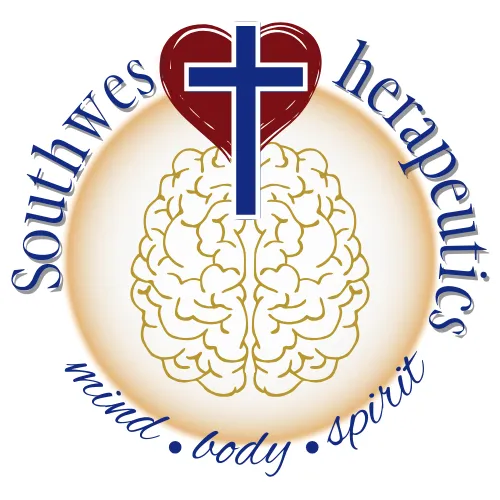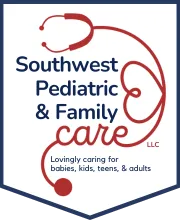
Prioritizing Mental Wellness: How Southwest Therapeutics Supports Community Health
August is National Wellness Month—a time to reflect on how we care for our minds and bodies, and more importantly, how we support one another in doing so. At Southwest Therapeutics, we are deeply committed to the well-being of our Deming community. Our mission goes beyond therapy sessions; we aim to educate, equip, and extend a helping hand to anyone navigating the challenges of mental and emotional health.
Empowering Self-Care Through Health Literacy and Self-Efficacy
Self-care is not a luxury—it’s a foundational component of mental wellness. Research shows that individuals with higher health literacy and stronger self-efficacy are more likely to engage in positive self-care behaviors and experience better health outcomes (Ong-Artborirak et al., 2023). At Southwest Therapeutics, we integrate this knowledge into our approach by offering psychoeducation, handouts, and one-on-one sessions that build confidence in mental health literacy. Whether you are managing anxiety, depression, or ADHD, our therapists help you understand your symptoms and empower you to take an active role in your healing journey.
Addressing Attention and Stress Through Evidence-Based Interventions
Mindfulness-Based Stress Reduction (MBSR) is a well-supported intervention for managing stress, emotional dysregulation, and attention difficulties. A recent study comparing MBSR to progressive attention training in adults with ADHD showed that mindfulness led to significant improvements in emotional control and focus (Stern et al., 2023). These findings are echoed in long-term studies with healthcare students, showing sustained benefits of MBSR in reducing burnout and enhancing self-awareness (van Dijk et al., 2022). Southwest Therapeutics incorporates mindfulness and attention training into our individual and group therapy services, offering clients practical tools for daily stress management.
Building Family and Peer Support for Lasting Resilience
Healing doesn’t happen in isolation. Peer support and family connection are critical protective factors, especially for families affected by neurodiversity or chronic stress. McCrossin and Lach (2023) found that parent-to-parent support groups fostered resilience and reduced stress among caregivers of children with neurodisabilities. Similarly, Page-Reeves et al. (2021) demonstrated that peer groups for Mexican immigrant women significantly reduced feelings of isolation and depression. Connecting with a supportive community can be a powerful part of healing. Partnering with organizations that offer community groups, parenting classes, and culturally responsive support spaces tailored to the diverse needs of Deming can make a meaningful impact. At the same time, engaging in wellness activities—such as yoga, walking groups, local gyms, church fellowships, and women’s circles—can help individuals build connection, resilience, and support beyond the therapy room.
Supporting Physical Activity for Mental and Emotional Health
Physical activity is not just good for the body—it’s medicine for the mind. From children with physical disabilities to older adults managing stability and energy, research consistently supports movement as a path to emotional wellness (Bradbury & Tierney, 2024; Kulkarni et al., 2023). At Southwest Therapeutics, we educate clients on holistic wellness strategies, including gentle movement routines, body-based trauma interventions, and sensory regulation activities. We collaborate with community partners to promote accessible spaces for physical wellness—because everyone deserves a chance to thrive.
How Southwest Therapeutics Serves the Deming Community
Providing Education:
We offer resources to help individuals and families understand mental health in practical terms.Connecting with Resources:
We partner with schools, primary care providers, and local organizations to make sure our clients are connected to social services, transportation, and wellness tools.Extending a Hand:
Whether you're looking for therapy, parenting support, trauma-informed care, or culturally sensitive counseling, our team is here to help. Our providers bring expertise, empathy, and a strong commitment to meeting you where you are.
Let’s Care for Each Other—This Month and Beyond
National Wellness Month is a timely reminder that community care is self-care. At Southwest Therapeutics, we believe that by investing in the mental health of individuals, we uplift the entire Deming community. If you or someone you love is in need of support, don’t wait. Reach out. Together, we heal stronger.
References
Bradbury, M., & Tierney, S. (2024). Perspectives of children with physical disabilities, parents and physiotherapists on use of walkers and their potential to increase physical activity. Journal of Child Health Care, 28(2), 256–276. https://doi.org/10.1177/13674935221117868
Corbin, C. B. (2025). A response to “Why should the next generation of youth guidelines prioritize vigorous physical activity?”. Sports Medicine - Open, 11(1), 70. https://doi.org/10.1186/s40798-025-00882-1
Kulkarni, A., Cui, C., Rietdyk, S., & Ambike, S. (2023). Humans prioritize walking efficiency or walking stability based on environmental risk. PLOS ONE, 18(4), e0284278. https://doi.org/10.1371/journal.pone.0284278
McCrossin, J., & Lach, L. (2023). Parent-to-parent support for childhood neurodisability: A qualitative analysis and proposed model of peer support and family resilience. Child: Care, Health and Development, 49(3), 544–554. https://doi.org/10.1111/cch.13069
Ong-Artborirak, P., Seangpraw, K., Boonyathee, S., Auttama, N., & Winaiprasert, P. (2023). Health literacy, self-efficacy, self-care behaviors, and glycemic control among older adults with type 2 diabetes mellitus: A cross-sectional study in Thai communities. BMC Geriatrics, 23(1), 297. https://doi.org/10.1186/s12877-023-04010-0
Page-Reeves, J., Murray-Krezan, C., Regino, L., Perez, J., Bleecker, M., Perez, D., Wagner, B., Tigert, S., Bearer, E. L., & Willging, C. E. (2021). A randomized control trial to test a peer support group approach for reducing social isolation and depression among female Mexican immigrants. BMC Public Health, 21(1), 119. https://doi.org/10.1186/s12889-020-09867-z
Stern, P., Kolodny, T., Tsafrir, S., Cohen, G., & Shalev, L. (2023). Near and far transfer effects of computerized progressive attention training (CPAT) versus mindfulness-based stress reduction (MBSR) practice among adults with ADHD. Journal of Attention Disorders, 27(7), 757–776. https://doi.org/10.1177/10870547231155877
van Dijk, I., van Beek, M. H. C. T., Arts-de Jong, M., Lucassen, P. L. B. J., van Weel, C., & Speckens, A. E. M. (2022). Experiences of clinical clerkship students with mindfulness-based stress reduction: A qualitative study on long-term effects. Frontiers in Psychology, 13, 785090. https://doi.org/10.3389/fpsyg.2022.785090



